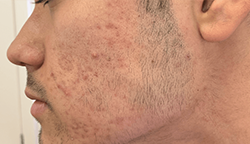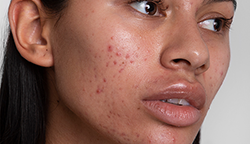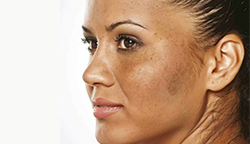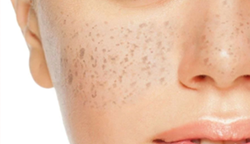What is hyperpigmentation?
Noticed that some areas on your face look darker compared to others? Well, if certain patches of skin are covered with a darker colour than the surrounding areas, you could have hyperpigmentation, a common skin condition that occurs when the skin produces more melanin. Melanin is produced by cells called melanocytes and gives our skin, hair and eyes their color. Generally dark-skinned people have more melanin than those who have a lighter skin shade.
What are the causes of hyperpigmentation?
-
Exposure to the sun which can result in increased melanin production and cause sun spots or age spots.</p -
Skin inflammation such as acne, eczema, lupus or injury to skin can result in post inflammatory hyperpigmentation -
Medications such as antidepressants, oral contraceptives or even drugs that increase sensitivity to the sunlight -
Medical conditions such as Addison’s disease (affects the adrenal glands ) and hemochromatosis (an inherited condition that causes the body to contain too much iron) can result in making the skin appear darker or tanned
Symptoms of hyperpigmentation
- Large patches of darkened skin
- Black (or dark brown, tan) spots due to sun exposure
- Spots or patches on skin due to inflammation (hyperpigmentation acne) or injury
Types of hyperpigmentation
External factors such as UV exposure, pollution and internal factors such as hormones and aging play a role in hyperpigmentation, but the main ones include
-
- Post inflammatory hyperpigmentation (PIH)
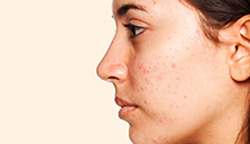
In this type of hyperpigmentation, prevention is the best cure. Getting acne, eczema or other problems under control will prevent new dark spots from forming. Combining natural skin brighteners such as licorice and Niacinamide along with retinols (help in exfoliating the dead skin cells thus rejuvenating it) can work well too.
-
- Melasma
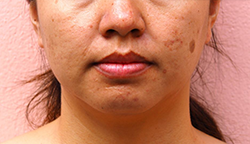
Hyperpigmentation Treatment for Melasma includes using natural skin brighteners like licorice, vitamin C, Kojic acid, and green tea as they can be used for a longer duration. Professional treatments for melasma include chemical peels and microneedling in combination with brightening agents.
-
- Photoaging or sun spots
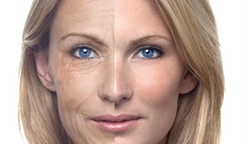
Treatment for photoaging mostly includes chemical peels which have proven quite effective. For people with lighter skin IPL (intense pulsed light) is a good treatment option.
-
- Freckles

Freckles are difficult to get rid of and the best treatment for them is limiting exposure to the sun and using a good SPF, broad spectrum sunscreen while going out.
-
- Diagnosis of hyperpigmentation

-
- Skin Care Tips
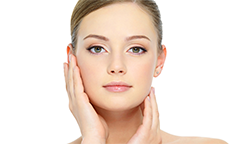
- Don’t go out too much in the sun
- Always apply a good SPF 30 & above, broad spectrum sunscreen before going out
- Use a vitamin C serum (antioxidant properties) to reduce existing dark spots
- Don’t forget to remove make up before sleeping
- Use mild creams with skin lightening agents like kojic acid, arbutin or sabi white with retinoid
- Wearing caps and long sleeved cotton clothes that limit direct contact of sunlight with your skin



